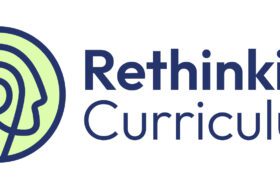Getting the Best Out of Boys (under 5)
Gender differences have usually been put down to brain size; the different speed of development; testosterone, and other biological differences. However, recent neuroscience findings have questioned many of these old theory assumptions and offer an alternative way of looking at the issues and the implications on day-to-day practice.
This session has been designed for those early years professionals who want to get the best out of boys.
Participants will leave with:
- An increased understanding of boys’ development and gender differences;
- An increased confidence in engaging and getting the best from boys.
The presentation will cover the following:
- What do the achievement statistics tell us? – boys don’t underachieve, but some boys do, and it’s more complex than just gender. This isn’t about bringing boys into school later; changing learning styles and male role models, but about characteristics.
- Early Years understandings of boys and gender – too often, still stuck in a nature/nurture framework, with delayed development, or social learning theory. This often results in us manoeuvring around boys’ biology (more play outside, or waiting until they are ready for formal school, or waiting for them to catch up).
- Boy learning characteristics – a brief look at our Track-back investigation, where we looked for characteristics that underachieving boys shared in early years.
- Brain plasticity and habit formation – why Early Years intervention can change characteristics, that could lead to underachievement.
- Examples of intervention – including boys with too much NO in them, too much emotion and very limited language.
Resources
- Download presentation
- Assessment beyond levels in the early years
- National curriculum assessments: Early Years Foundation Stage
- Reception baseline assessment
- Targeting the language gap in EYFS children
- What does research say about memory, and what can we do to enhance long-term learning in the classroom?
- Can neuroscience contribute to the science of learning?
- A brief introduction to cognitive science
- Further reading and resources: Cognitive science
- Pretend play and the development of children’s language skills
- Further reading & resources – Early Years learning
- Albert Bandura – Bobo Doll Experiment
- Outdoor Learning
- EEF Early Years Toolkit
- Behaviour for learning
- Development matters in the Early Years Foundation Stage
- Development Matters: Non-statutory curriculum guidance for the early years foundation stage
- Funding pressures put at risk early years education for children with SEND
- Webinar playback: Supporting young multilingual pupils in early years settings
- The Power of Education to Fight Inequality: How increasing educational equality and quality is crucial to fighting economic and gender inequality
- Working with Parents to Support Children’s Learning – EEF Guidance report
Further Reading
Statistics:
- DfE EYFS profile results in England, 2019
- DfE Phonics screening check and KS1 assessments in England, 2019
- DfE SATs KS2 in England, 2019
- GCSE: Proportion of GCSE entries awarded a C/4 or higher in the United Kingdom between 2000 and 2021, by gender
- A level pass rates in the United Kingdom in 2021, by grade and gender
- SEN
- Biddulph S (1998): Raising Boys, Thorsen’s, London
- Raising Boys’ Achievement
- Bleach K (1998): Raising Boys’ Achievement in Schools, Trentham Books, Stoke-on-Trent
- Gurian M (2001): Boys and Girls Learn Differently: A Guide for Teachers and Parents, Jossey-Bass, San Francisco
- Kilmartin, C (2006). The Masculine Self. Sloan Publishing, New York
- Noble C & Bradford W (2000): Getting it Right for Boys … and Girls, Routledge, London
- Palmer, S. (2009) 21st Century Boys. Orion, London
- Rutter, M (2010) Genes and Behavior (nature-nurture interplay explained). Blackwell Publishing, Oxford
- Patterns of language impairment and behaviour in boys excluded from school British Journal of Educational Psychology Volume 75, Issue 1, pages 37–50, March 2005
- Shelton F (2007): Too Cool for School? Why are our boys not achieving?
Brain plasticity:
- Rethinking the Brain: New Insights into Early Development
- New York: Families and Work Institute, pp. 15-27. For further details visit https://www.familiesandwork.org/
- Stiles, J & Jernigan, T.L. (2010) The Basics of Brain Development. Neuropsychology
- Fine, C (2010) Delusions of Gender, Icon Books, London
- Kolb, B, and Gibb, R (2011) Brain Plasticity and Behaviour in the Developing Brain. J Can Acad Child Adolesc Psychiatry. 2011 Nov; 20(4): 265-276 Brain Plasticity and Behaviour in the Developing Brain
Early Years:
- Connolly P (2004): Boys and Schooling in the Early Years, Routledge Falmer, London
- Kokstejn, J. Musalek, M. and Tufano, J.J (2017). Are sex differences in fundamental motor skills uniform throughout the entire preschool period? PLoS One. 2017; 12(4): e0176556
Our Presenters
Trefor Lloyd has a long experience of carrying out research and investigations (usually leading to projects). He has, over the years, researched, developed and delivered a range of programmes targeting boys and young men, primarily in schools, but also youth services, criminal justice and community settings.
He has written a number of books, reports, research findings, articles and other materials about health, adolescence, parenting, masculinity and development.
While his background is in child development, he could be described professionally as 1 part researcher and evaluator; 4 parts programme developer and deliverer; 2 parts writer and trainer, and 1 part library and statistics geek.
His current work includes developing and delivering interventions targeting boys (and their families) who are struggling to settle in Reception and Year 1 (Stand Out Children Project), and supporting Primary schools in their management of children’s behaviour (particularly boys).





